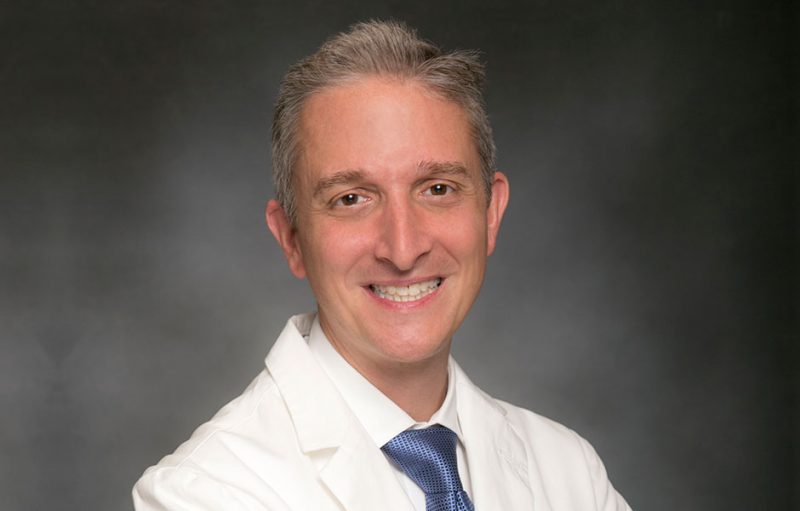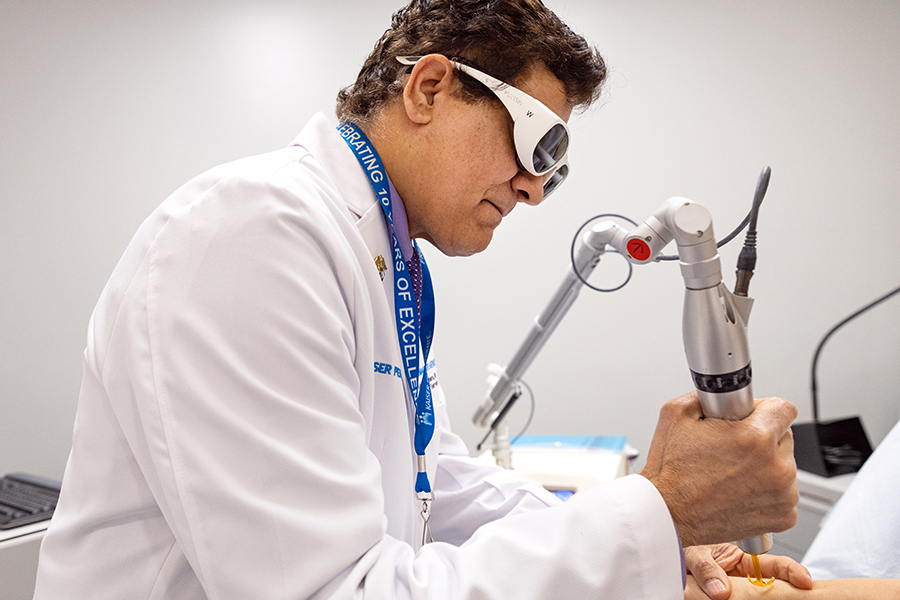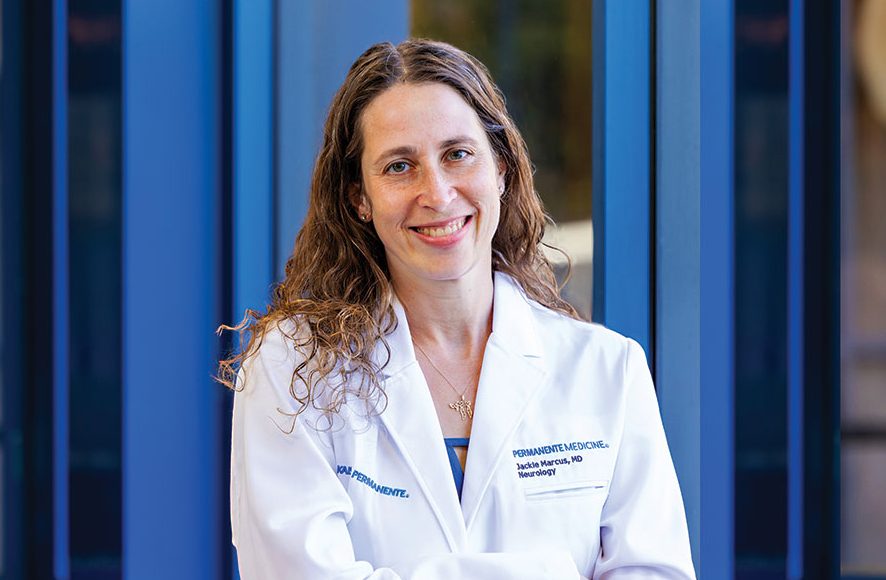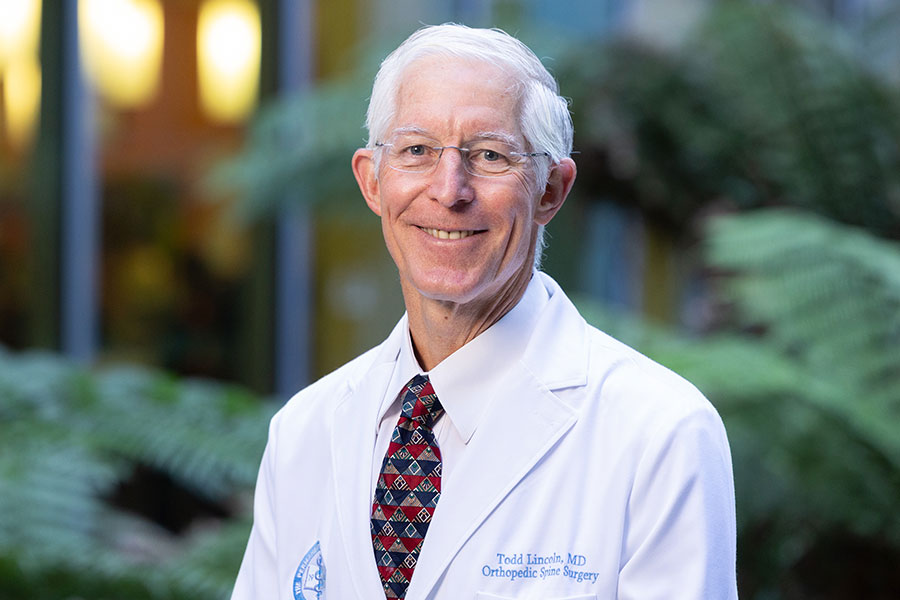Permanente Medicine-October 4, 2017
Stephen Parodi, MD, was drawn to the field of infectious disease because of his passion for solving complicated health conditions with an added focus on population health.
In some ways, he and other infectious disease physicians are like Sherlock Holmes – the scrupulous investigators of the medical world tasked with solving the most puzzling cases.
“It was the detective work and making the diagnosis when no one else could figure it out that really got me interested,” says Dr. Parodi, an associate executive director for The Permanente Medical Group (TPMG), the physician group exclusively providing care to more than 4 million Kaiser Permanente patients and members in Northern California.
His early inspiration for pursuing the field came from reading “The Hot Zone,” the non-fiction tale of epidemiologists from the Centers for Disease Control and Prevention (CDC) who were tracing the origins of viruses such as Ebola. The challenge of figuring out why outbreaks happen and how to stop them appealed to Dr. Parodi. While infectious disease specialists are called to assist in determining an illness in a group health environment, their day-to-day work includes seeing patients who may have a difficult-to-diagnose condition or an infection that needs to be treated on a long-term basis, such as HIV/AIDS.
Since joining TPMG in 2002, Dr. Parodi has held leadership roles as chief of Infectious Disease and director of HIV Care for the Napa-Solano area, TPMG chair of Infectious Disease, and chair of the Northern California Regional Infection Control Committee. He continues to actively collaborate with the California Department of Public Health and the CDC on public health matters.
Dr. Parodi’s expertise in addressing a health system’s overuse of antibiotics led to Kaiser Permanente’s successful Antimicrobial Stewardship Program. What started as a local initiative to address an overuse of meropenem, a critically important antibiotic to treat resistant bacterial infections, evolved into a widely-replicated program to optimize antimicrobial use in the hospital setting. The program resulted in a significant reduction in total antibiotics used in Northern California and, combined with other infection control programs, has resulted in a reduction in health care-acquired infections.
Dr. Parodi was recognized for these contributions as one of the recipients of TPMG’s Sidney R. Garfield Exceptional Contribution Award in 2011.
Helping Individuals and the Community
The son of a public health nurse and a dentist, Dr. Parodi was exposed to medicine at an early age. He was also a patient – diagnosed at age 19 with a cardiac condition known as Wolff-Parkinson-White syndrome. After undergoing heart surgery to cure the condition, he says he resolved to help others just like the physicians who helped him.
Dr. Parodi gained an interest in public policy from his college days in Santa Clara, Calif., where he was involved in student advocacy and later interned with the Santa Clara City Manager, assisting with the development of a volunteer program and answering citizen complaints. As a medical resident participating in the work up of infectious disease outbreaks, he also learned about the importance of physician communication with the media, serving to educate the community about public health issues in the same way a physician educates an individual patient in the exam roomAs the practice of medicine and a physician’s charge in the community evolves, Dr. Parodi says the need for effective communications is critical. He believes that a doctor in his line of work must go beyond traditional inquiry in order to understand a patient’s life and lifestyle. The answers to the right questions, however benign they may seem, might hold the key to solving the mysteries behind complex health conditions.
In his role as TPMG associate executive director, Dr. Parodi has brought this same level of focus and inquiry to these additional areas of responsibility: patient safety, the care of complex patients, laboratory medicine, risk management, transgender health, nephrology, and renal transplant services.
The Story of Permanente
Along with his leadership role with TPMG, this summer Dr. Parodi was named executive vice president of External Affairs, Communications, and Brand at The Permanente Federation, the national organization representing the various Permanente Medical Groups (PMGs) that provide care to Kaiser Permanente members and patients.
The executive leadership of the PMGs embarked on work this year to formally brand Permanente Medicine. The PMGs have a “tremendous storied and rich history based on core values that have allowed us to be successful,” says Dr. Parodi, who is leading the branding work with Federation co-CEO Richard Isaacs, MD, FACS.
The goal is for people considering Kaiser Permanente to understand that the power behind the organization is Permanente Medicine.
Permanente physicians’ mission to improve the quality of care for patients and the community through an integrated care model can only be found at Kaiser Permanente, which comprises the PMGs, Kaiser Foundation Health Plan, and Kaiser Foundation Hospitals. “This story needs to be told,” he says, “particularly at this juncture and time in our nation, when the country is searching for solutions to the health care crisis.”Dr. Parodi adds that he hopes through the brand work, more Permanente physicians can confidently articulate to colleagues what it means to practice at one of the Permanente Medical Groups and that consumers deciding on health coverage will understand the value of the quality care provided.“The goal is for people considering Kaiser Permanente to understand that the power behind the organization is Permanente Medicine.”
This article originally appeared in Permanente Medicine






